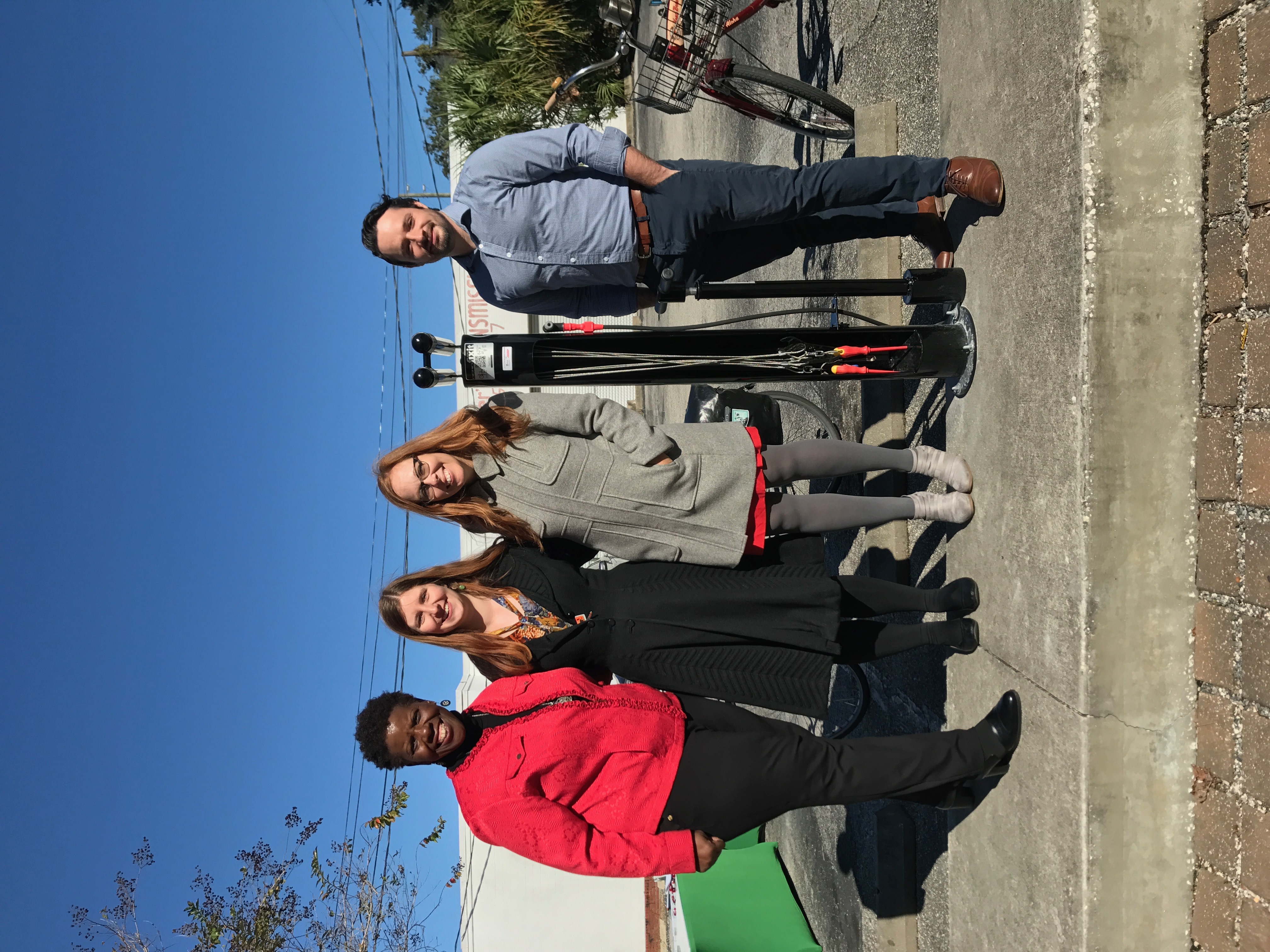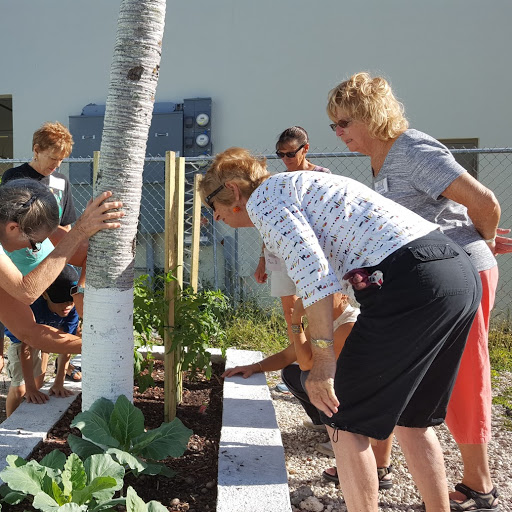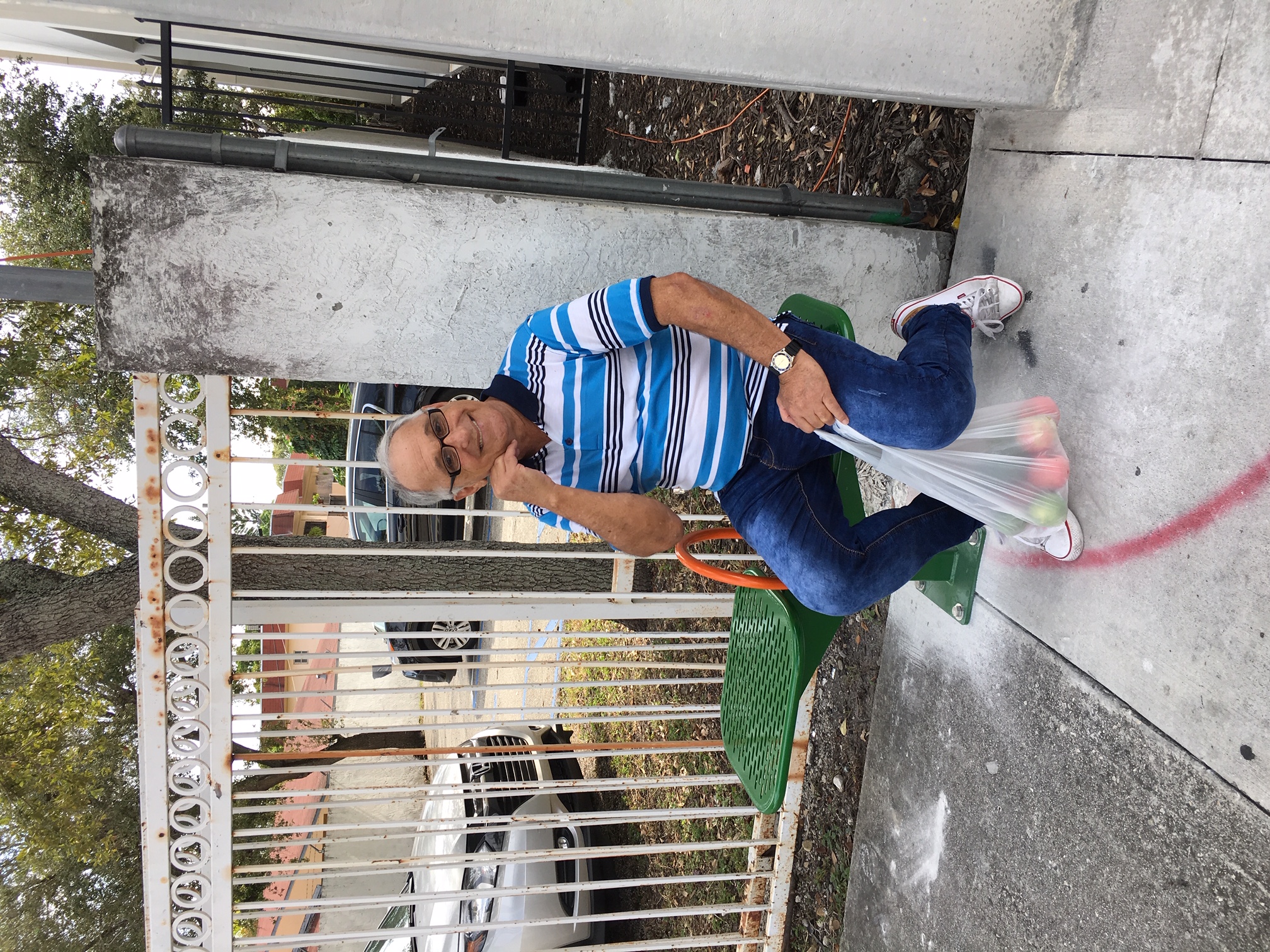AARP Hearing Center
Hoping to make their communities more vibrant and mobile, three Florida non-profits used AARP Community Challenge grants to make their towns more enticing and livable for people of all ages.
While Miami focused on the needs of urban transit users, Jacksonville looked to enhance another form of transportation, the bicycle. The Upper Keys project, in Tavernier, was designed to bring young and old together through a community garden project. The three grants totaled $29,205.
RELATED: 2019 Community Challenge Grant Applications Now Open

Miami – Urban Health Partnerships, $14,500
With its focus on developing healthy communities and making Miami-Dade County livable for older adults, the agency looked toward Little Havana and ways to encourage its residents to use public transit. A culturally diverse community, it has a large number of older adults (nearly one-third are over the age of 55) and its residents use the city trolley or county buses three times more than the general population of Miami.
“We’d done outreach with the residents and learned they’d like to have more benches to sit on while they wait for the bus or the free trolley, and some shade. In Miami, it’s hot all the time. They wanted a place to rest and for people to engage more as a community while at the bus stops,” explained Isabel Kilzi Rovira, Chief Operating Officer of Urban Health Partnerships and Co-founder of Urban Health Solutions.
Working with other groups and grants as part of the Miami-Dade Age Friendly Initiative, they worked on a pilot street program to get trees planted and slim benches (painted Miami’s official colors of green and orange) that would fit in the small roadside space available.
“We worked with everyone to make these things happen,” Rovira said. “The AARP grant provided the benches. And the Marlins Foundation provided money to add the handlebars to the benches to make it easier for older adults to use.”

Upper Keys – Keys to Peace, $7,985
What better way to bring people together than through a community garden project, where all ages can learn how to nurture plants and vegetables and then enjoy the harvest together.
Betsy Baste, president of Just Older Youth Inc. and director of the JOY Center, oversees the garden project which has teamed older residents of the community with younger adults who need community service hours to satisfy requirements of the court system.
The JOY Center offers a variety of classes for older adults one day a week, but one of the popular ones has always been gardening. Once the grant was approved, the community was asked for input on what it would like the garden to look like. A local church volunteered the land and local landscapers provided other necessary ingredients, like soil. Raised boxes, including some easy for wheelchair gardeners to tend, were built.
“We’ve grown cherry tomatoes, herbs, stir fry broccoli and collards. A lot of people have never had collards, so they don’t know what they taste like,” said Baste. “We talk about cooking healthy, cooking without salt. We’ve even gotten kids to eat butter squash and zucchini squash!”
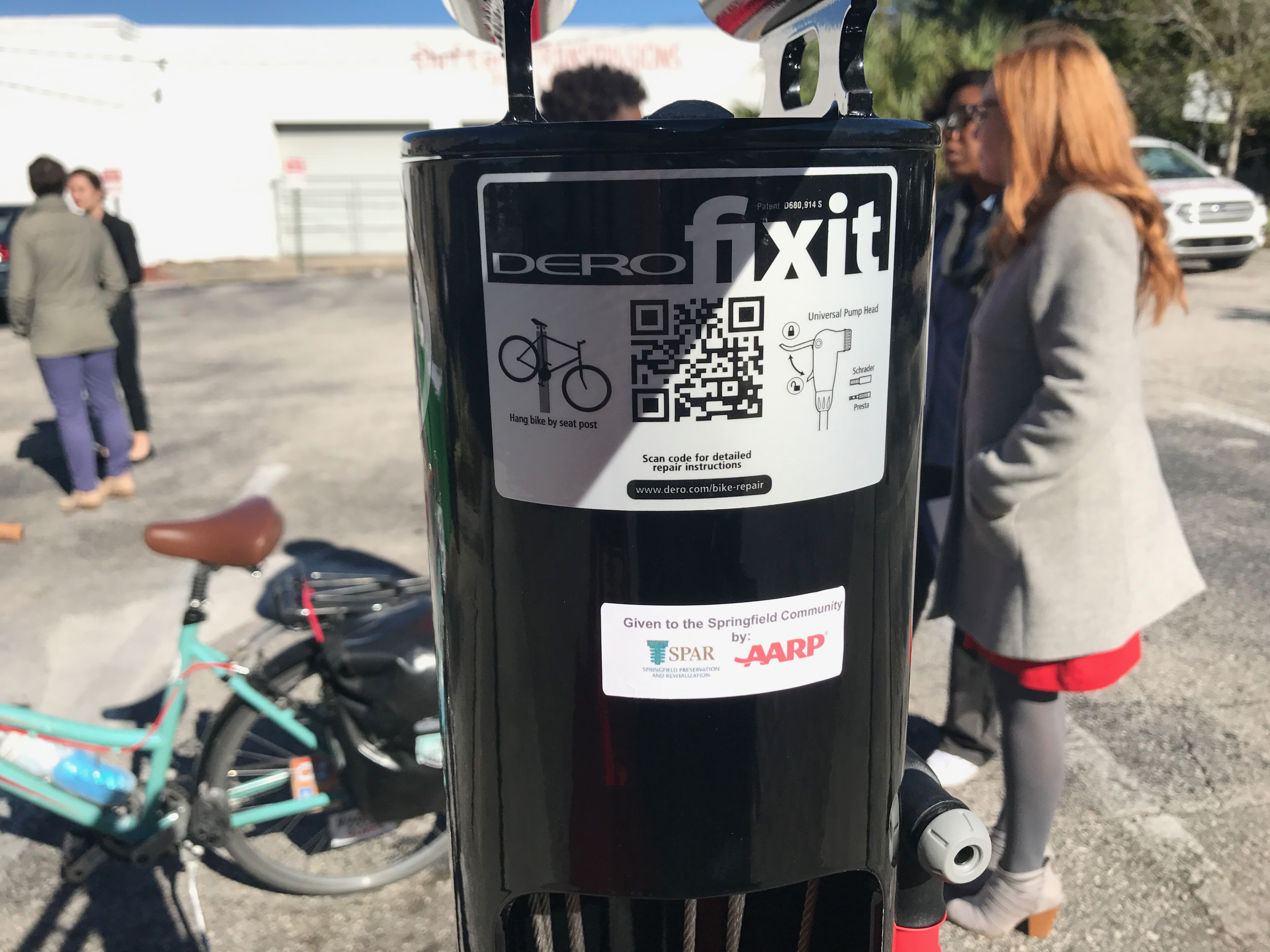
Jacksonville – Springfield Preservation and Revitalization Council, $6,720
So, you’re riding into town to do a little shopping and your tire goes flat. Your bicycle tire, that is. What to do? Just walk it over to the closest roadside bike repair station and fix it. (Works for wheelchairs too.)
Directly north of downtown Jacksonville, Springfield is a community of about 6,000 residents that is considered the most bikeable neighborhood in the area. The Springfield Preservation and Revitalization Council (SPAR) wanted to build on that reputation by also making it one of the most bike-friendly neighborhoods for all ages. There were already bike racks in front of several businesses, so they also wanted to add more of those along with some trash cans.
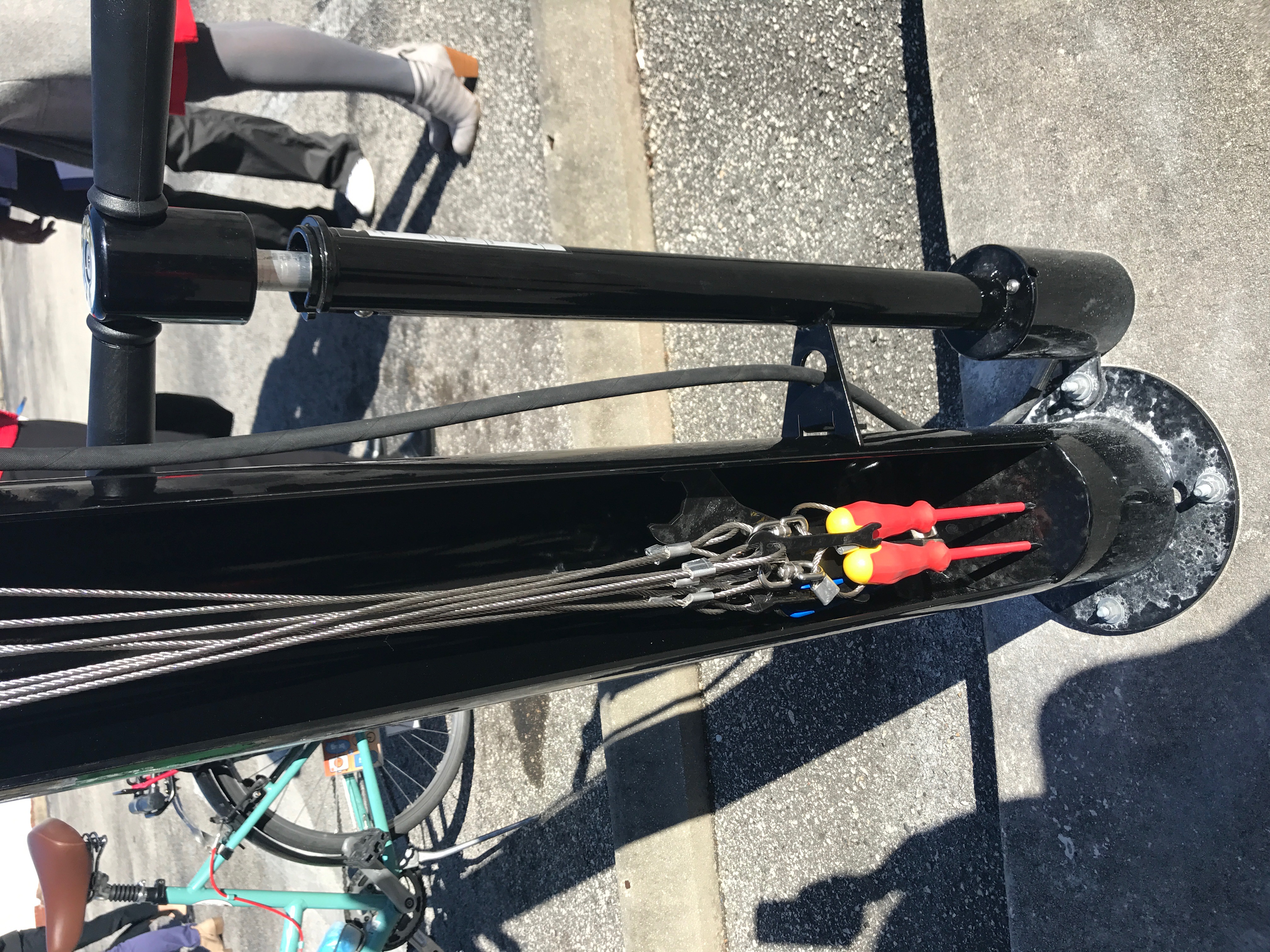
“We’re in a real aggressive upswing. Our population has grown by about 1,000 and we’re getting more businesses that have increased walking traffic,” said Kelly Rich, SPAR’s executive director. “We want to keep our main street walkable.”
Next step is to get the bike stations added to Google maps.
These three Florida projects were picked to be funded out of 68 grant applications filed by the state’s local government entities and non-profits. Nationwide, a total of $1.3 million was distributed to 129 of the “quick action” projects, which were to be completed by November 2018. All are small-scale projects designed to make immediate improvements that benefit residents of all ages and are part of AARP’s drive to encourage the development of “livable” communities.
